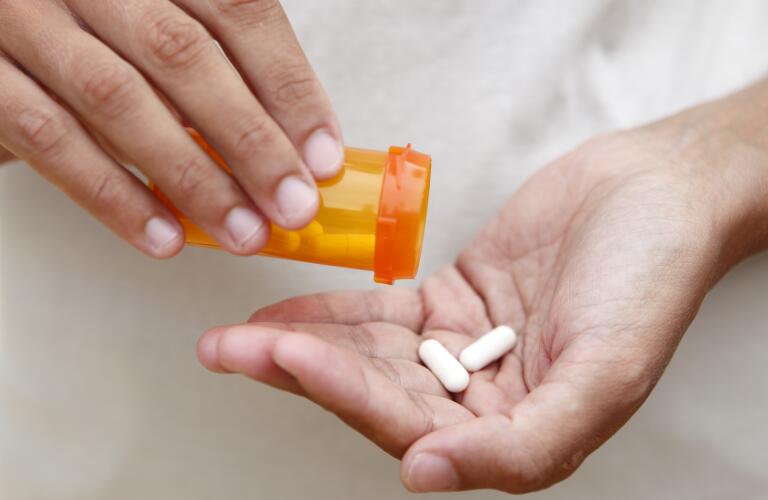
Antidepressant medications were discovered in the 1950s, but it was only 30 years later that treatment for depression with drugs entered mainstream medicine. This was when drugs like Prozac (fluoxetine) and Paxil (paroxetine) came on the market. They seemed like miracle drugs for many people living with depression helping relieve often crippling symptoms. Overall, antidepressants are now one of the most frequently prescribed groups of drugs in the United States.
How Antidepressants Work
Antidepressants work by changing the levels of specific chemicals, called neurotransmitters, in your brain. These chemicals include serotonin, dopamine, and norepinephrine. The antidepressants either increase the level of neurotransmitters or they can affect how your brain absorbs or uses enzymes and neurotransmitters, helping relieve the signs and symptoms of depression.
Older Antidepressants: What They Do and Their Drawbacks
The first antidepressants were monoamine oxidase inhibitors (MAOIs) and tricyclics. In some people with depression, an enzyme called monoamine oxidase removes certain neurotransmitters from the brain. MAOIs prevent this from occurring. MAOIs include:
- Isocarboxazid (Marplan)
- Phenelzine (Nardil)
- Selegiline (Emsam)
- Tranylcypromine (Parnate)
Tricyclics work in a different way from MAOIs, increasing the amount of serotonin and norepinephrine in the brain by preventing them from being absorbed. There are several drugs in the tricyclic class, common ones are:
- Amitriptyline (Elavil)
- Clomipramine (Anafranil)
- Desipramine (Norpramin)
While these medications helped many people who had been suffering from depression, both MAOIs and tricyclics could cause serious side effects. Some of the most common side effects of MAOIs include:
- Diarrhea or constipation
- Drowsiness
- Dry mouth
- Headache
- Insomnia
- Involuntary muscle jerks
- Low blood pressure
- Muscle cramps
- Nausea
- Prickling or tingling sensation in the skin
- Reduced sexual desire
- Weight gain
People taking MAOIs also have to be careful about what they eat and drink. Foods such as aged cheeses, cured meats, soy sauce, and tofu, are high in an amino acid called tyramine. MAOIs can interact with these foods and trigger dangerously high blood pressure.
Some of the most common side effects from tricyclics include:
- Blurred vision
- Constipation
- Drowsiness
- Dry mouth
- Excessive sweating
- Increased appetite and weight gain
- Lightheadedness, caused by a drop in blood pressure
- Sexual problems
- Tremor
- Urine retention
- Weight loss
The Advantages of the Newer Antidepressants
The newer classes of antidepressants include selective serotonin reuptake inhibitors (SSRIs) and serotonin and norepinephrine reuptake inhibitors (SNRIs). These work by raising or leveling the amount of serotonin and norepinephrine in your brain. SSRIs include:
- Fluoxetine (Prozac, Selfemra)
- Paroxetine (Paxil, Pexeva)
- Sertraline (Zoloft)
- Citalopram (Celexa)
- Escitalopram (Lexapro)
And SNRIs include:
- Duloxetine (Cymbalta)
- Venlafaxine (Effexor XR)
- Desvenlafaxine (Pristiq, Khedezla)
- Levomilnacipran (Fetzima)
These antidepressants can cause side effects similar to the older classes, but they are less likely to occur and usually are less severe. Also, unlike with MAOIs, there are not usually any dietary restrictions for people who take them.
Atypical Antidepressants Can Also Be Effective
Depression can be tricky to treat and the traditional, or typical, antidepressants may not work for everyone. In these cases, doctors may turn to atypical antidepressants. These are drugs that were approved for other uses, but doctors found the drugs also changed the brain chemistry, helping patients who had depression.
Atypical antidepressants include:
- Bupropion (Wellbutrin, Forfivo XL, Aplenzin)
- Mirtazapine (Remeron)
- Trazodone (Oleptro)
- Vortioxetine (Trintellix)
These drugs are also used to treat conditions such as insomnia and anxiety. Bupropion is sold by the trade name Zyban to help people stop smoking.
There are many antidepressants on the market today. They all work by altering the brain chemistry, but each works slightly differently. As a result, some medications may work better than others, depending on the person. It’s not unusual for a person with depression to have to try a few antidepressants or different doses before finding one that effectively helps manage their sign and symptoms. Talk to your doctor about the best course of treatment for your depression.











